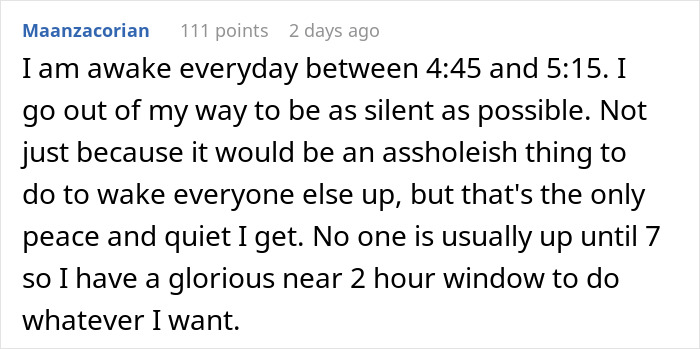Having relatives visit can be stressful. There might be pressure to keep your home spotless, entertain your guests at all hours and try to make the most of every single moment you get with them. By the end of the trip, however, you might be begging your family members to get out.
One mom recently reached out to Reddit to vent about the frustrating experiences she has with her father-in-law every time he visits. Below, you’ll find all of the details, as well as some of the replies invested readers shared.
It’s common for spouses to have trouble with their in-laws

Image credits: drazenphoto / Envato (not the actual photo)
And this mom has had enough of her father-in-law disrupting the whole household early in the morning


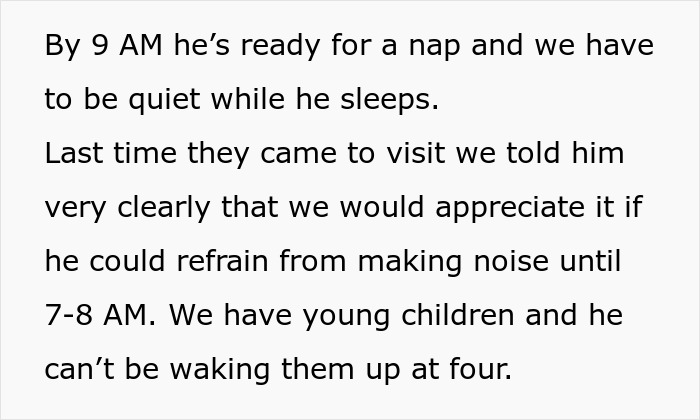



Image credits: halfpoint / Envato (not the actual photo)
Later, the mom updated her post and revealed even more infuriating things her father-in-law has done


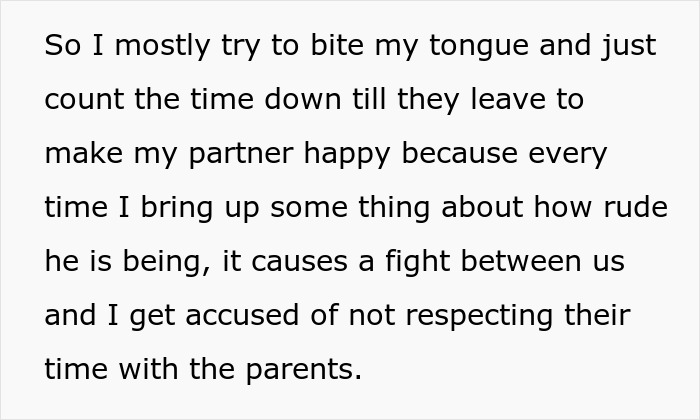


Image credits: drazenphoto / Envato (not the actual photo)





Image credits: DC_Studio / Envato (not the actual photo)
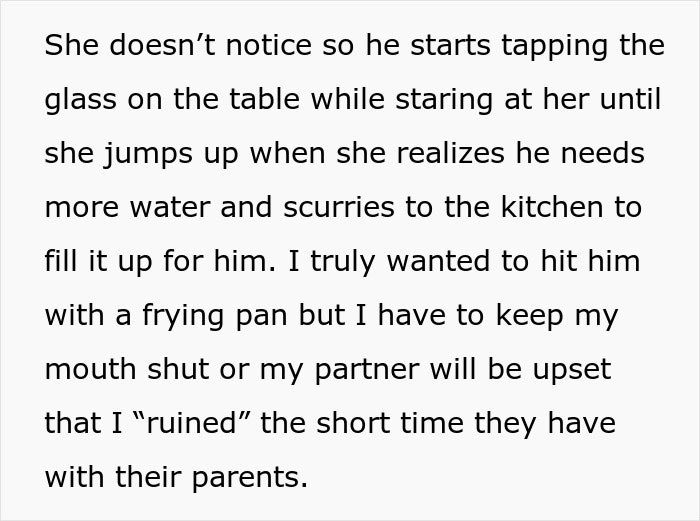
Image credits: Raven3131
The ideal time to wake up varies from person to person

Image credits: Acharaporn Kamornboonyarush / Pexels (not the actual photo)
I’m a morning person, and I personally prefer waking up early almost every day because I like to take advantage of the energy I have first thing in the morning. In my opinion, that’s the best time to work out, go grocery shopping, bake something nice for breakfast and, especially in the summer, enjoy the day before it gets too hot. But even I have my limits, and waking up at 4 a.m. is reserved only for days when I have to be at the airport at 6.
According to World Population Review, the average time that a person wakes up varies from country to country. In the United States, for example, residents usually rise at about 7:20 a.m. In South Africa, however, the typical time to get up is 6:24 a.m. And in Greece, many people don’t get out of bed until 8:25 a.m. Perhaps I need to move to Greece, so I can sleep in more often!
We all know someone who is obsessed with waking up early and swears up and down that it’s better for their mental and physical health, allows them time to meditate and helps them sleep better. But are these claims true? Well, Shelby Harris, PsyD, a clinical psychologist specializing in sleep medicine, told TODAY that the perfect time to wake up depends completely on the individual and their lifestyle.
Getting up early isn’t worth it if it leads to sleep deprivation

Image credits: Valeria Ushakova / Pexels (not the actual photo)
Experts recommend that adults sleep between 7 and 9 hours per night, so the most important factor is that our bed time and the time we wake up in the morning allow us to get enough rest. Those times might also be determined by whether you’re a night owl, a morning lark or anything in between. It’s also wise to stick to a schedule and try to wake up around the same time every day, so your body gets used to your routine.
Dr. Harris shared with TODAY that waking up early in the morning is usually recommended, as it allows you to “align your body’s circadian rhythm with the natural light-dark cycle,” but “early” means something different for everyone. One person might naturally hop out of bed at 5 a.m., while another might need to snooze until 8.
And there’s no point in getting out of bed at the crack of dawn if it means you’re sacrificing sleep. The Cleveland Clinic notes that even missing out on 1.5 hours of sleep a night can decrease a person’s alertness, cause memory problems, create moodiness or irritability and cause an inability or unwillingness to participate in every day activities.
And in the long term, sleep deprivation can cause fatigue, poor balance and coordination, mood changes and mental health issues, forgetfulness, changes in your appearance, weight gain, higher stress and even a weakened immune system. It’s also important to be well rested to lower your risk of getting into a car accident.
It’s important for couples to stand together when dealing with difficult in-laws

Image credits: Marcus Aurelius / Pexels (not the actual photo)
When it comes to the issue of dealing with difficult in-laws, this mother certainly isn’t the first to have frustrations with her father-in-law. In fact, the BBC reports that a whopping 75% of couples admit they’ve had trouble with an in-law. So how can spouses find a way to maintain their own healthy relationship without letting their parents interfere?
Brides.com recommends that couples maintain a united front while dealing with parents. Discuss issues privately and decide on how they will be addressed with parents ahead of time. It’s also wise to address problems as they come up, rather than sweeping them under the rug until a more convenient time appears. Speak directly about the issue with your parents or in-laws, and try to keep the conversation cool, calm and collected. Don’t be afraid to set boundaries and enforce them.
But remember to be empathetic towards your in-laws as well. As frustrating as they may be, it’s helpful to try to understand where they’re coming from. We would love to hear your thoughts on this situation down below, pandas. Then, if you’re interested in checking out another Bored Panda piece discussing in-law drama, we recommend this article next!
Readers called out the father-in-law’s behavior and noted that they wouldn’t have any patience for him either
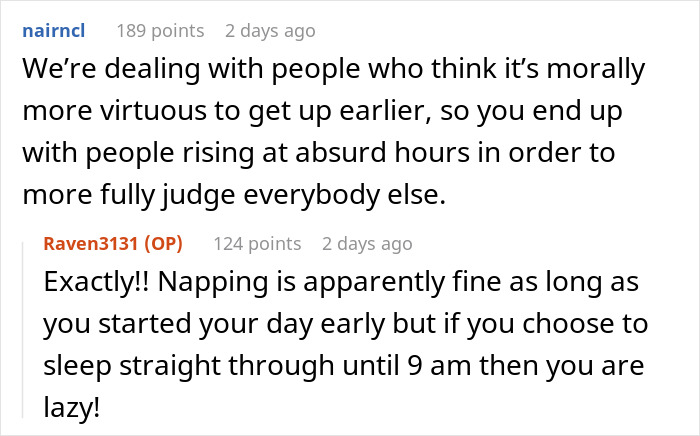







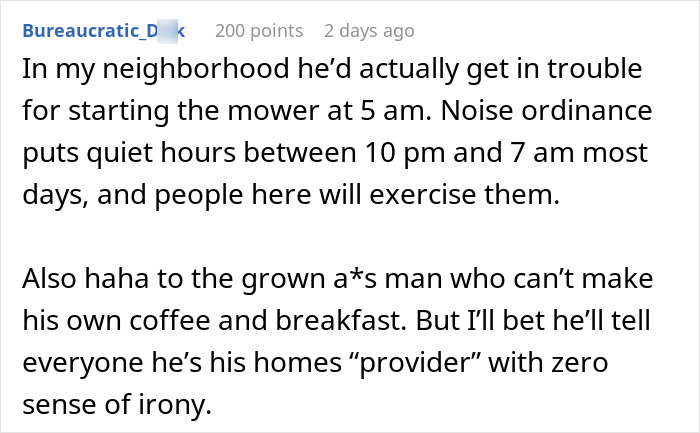



Some even had similar stories of their own to share


